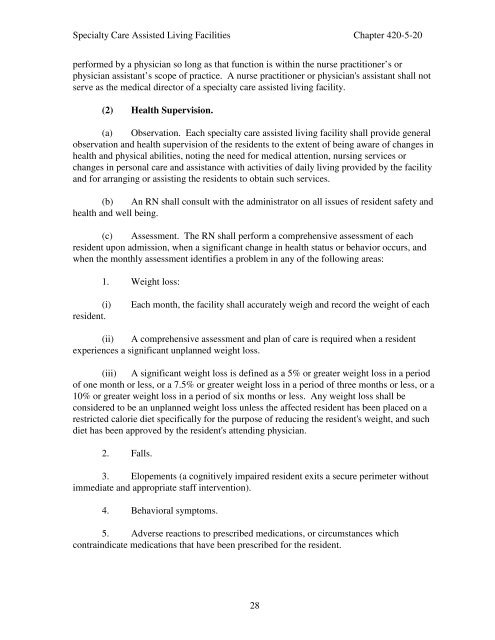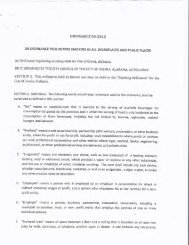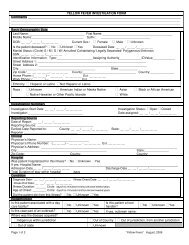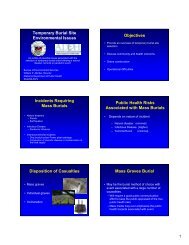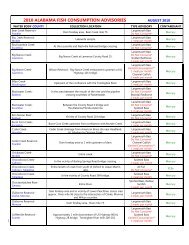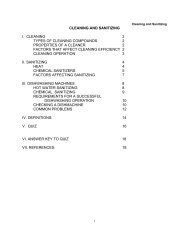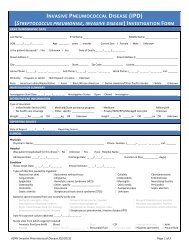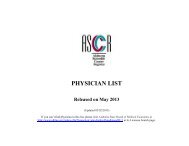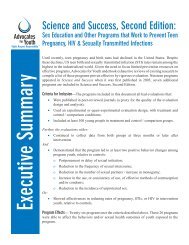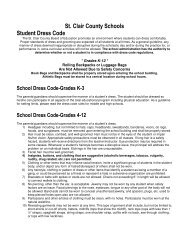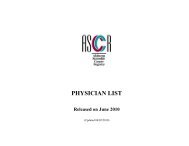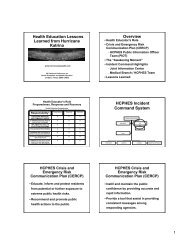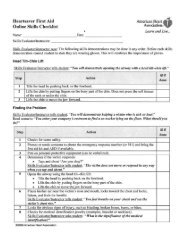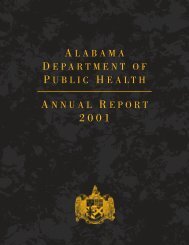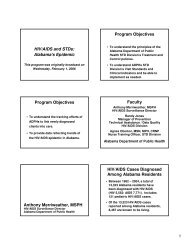Specialty Care Assisted Living Facilities - Alabama Department of ...
Specialty Care Assisted Living Facilities - Alabama Department of ...
Specialty Care Assisted Living Facilities - Alabama Department of ...
You also want an ePaper? Increase the reach of your titles
YUMPU automatically turns print PDFs into web optimized ePapers that Google loves.
<strong>Specialty</strong> <strong>Care</strong> <strong>Assisted</strong> <strong>Living</strong> <strong>Facilities</strong> Chapter 420-5-20<br />
performed by a physician so long as that function is within the nurse practitioner’s or<br />
physician assistant’s scope <strong>of</strong> practice. A nurse practitioner or physician's assistant shall not<br />
serve as the medical director <strong>of</strong> a specialty care assisted living facility.<br />
(2) Health Supervision.<br />
(a) Observation. Each specialty care assisted living facility shall provide general<br />
observation and health supervision <strong>of</strong> the residents to the extent <strong>of</strong> being aware <strong>of</strong> changes in<br />
health and physical abilities, noting the need for medical attention, nursing services or<br />
changes in personal care and assistance with activities <strong>of</strong> daily living provided by the facility<br />
and for arranging or assisting the residents to obtain such services.<br />
(b) An RN shall consult with the administrator on all issues <strong>of</strong> resident safety and<br />
health and well being.<br />
(c) Assessment. The RN shall perform a comprehensive assessment <strong>of</strong> each<br />
resident upon admission, when a significant change in health status or behavior occurs, and<br />
when the monthly assessment identifies a problem in any <strong>of</strong> the following areas:<br />
1. Weight loss:<br />
(i)<br />
resident.<br />
Each month, the facility shall accurately weigh and record the weight <strong>of</strong> each<br />
(ii) A comprehensive assessment and plan <strong>of</strong> care is required when a resident<br />
experiences a significant unplanned weight loss.<br />
(iii) A significant weight loss is defined as a 5% or greater weight loss in a period<br />
<strong>of</strong> one month or less, or a 7.5% or greater weight loss in a period <strong>of</strong> three months or less, or a<br />
10% or greater weight loss in a period <strong>of</strong> six months or less. Any weight loss shall be<br />
considered to be an unplanned weight loss unless the affected resident has been placed on a<br />
restricted calorie diet specifically for the purpose <strong>of</strong> reducing the resident's weight, and such<br />
diet has been approved by the resident's attending physician.<br />
2. Falls.<br />
3. Elopements (a cognitively impaired resident exits a secure perimeter without<br />
immediate and appropriate staff intervention).<br />
4. Behavioral symptoms.<br />
5. Adverse reactions to prescribed medications, or circumstances which<br />
contraindicate medications that have been prescribed for the resident.<br />
28


